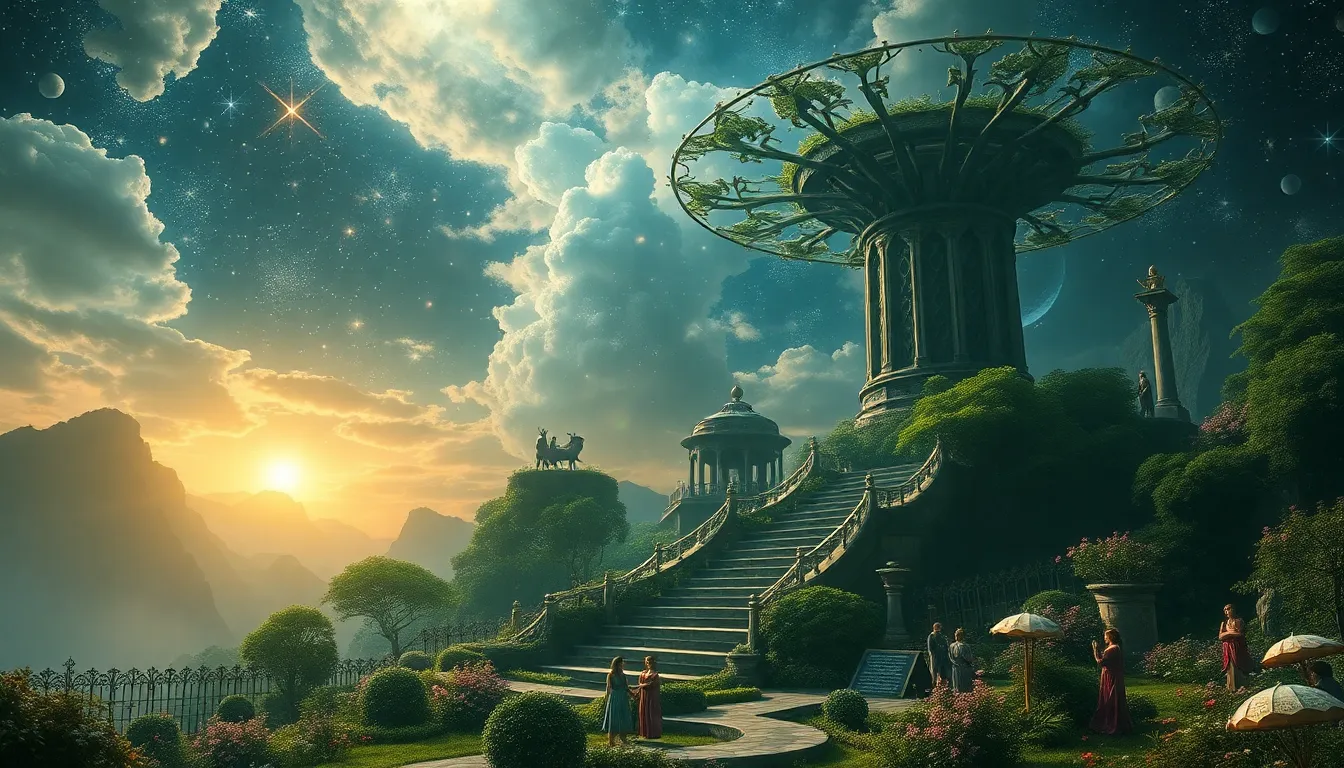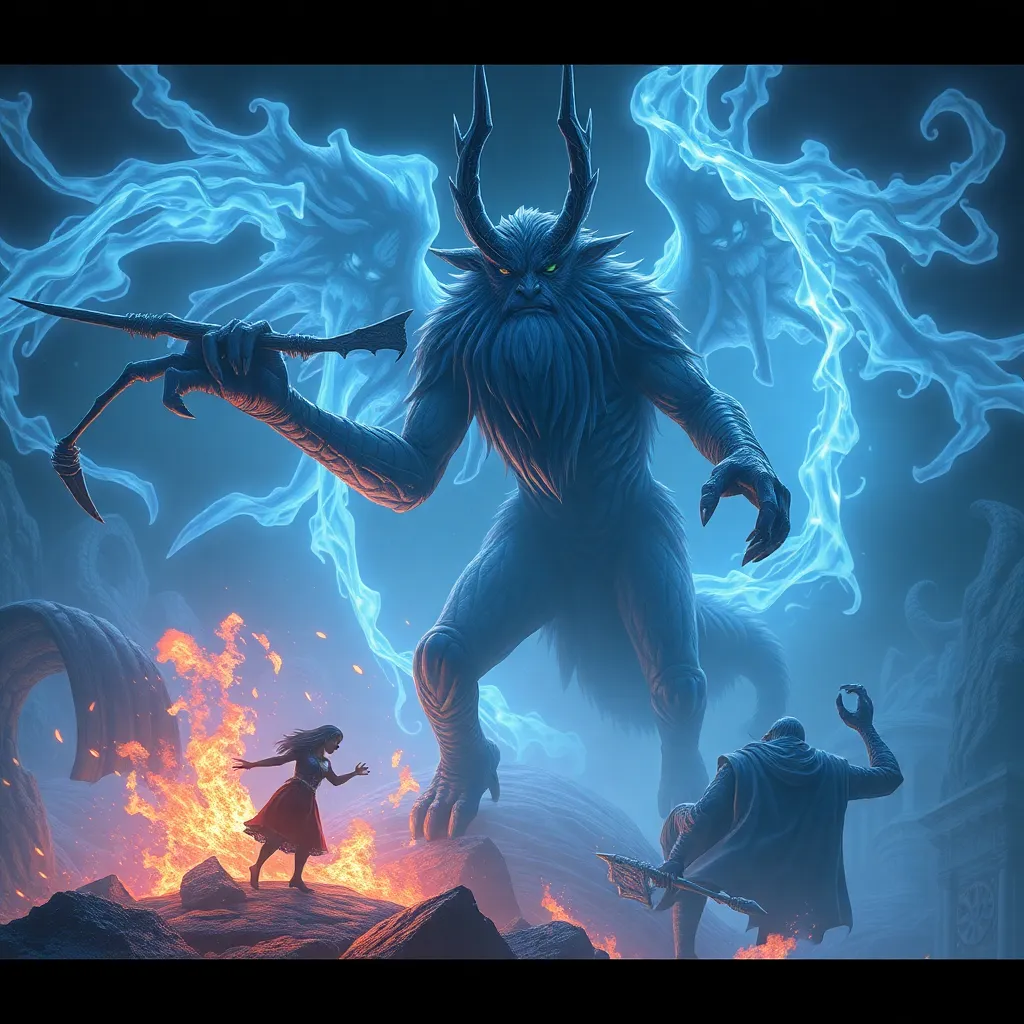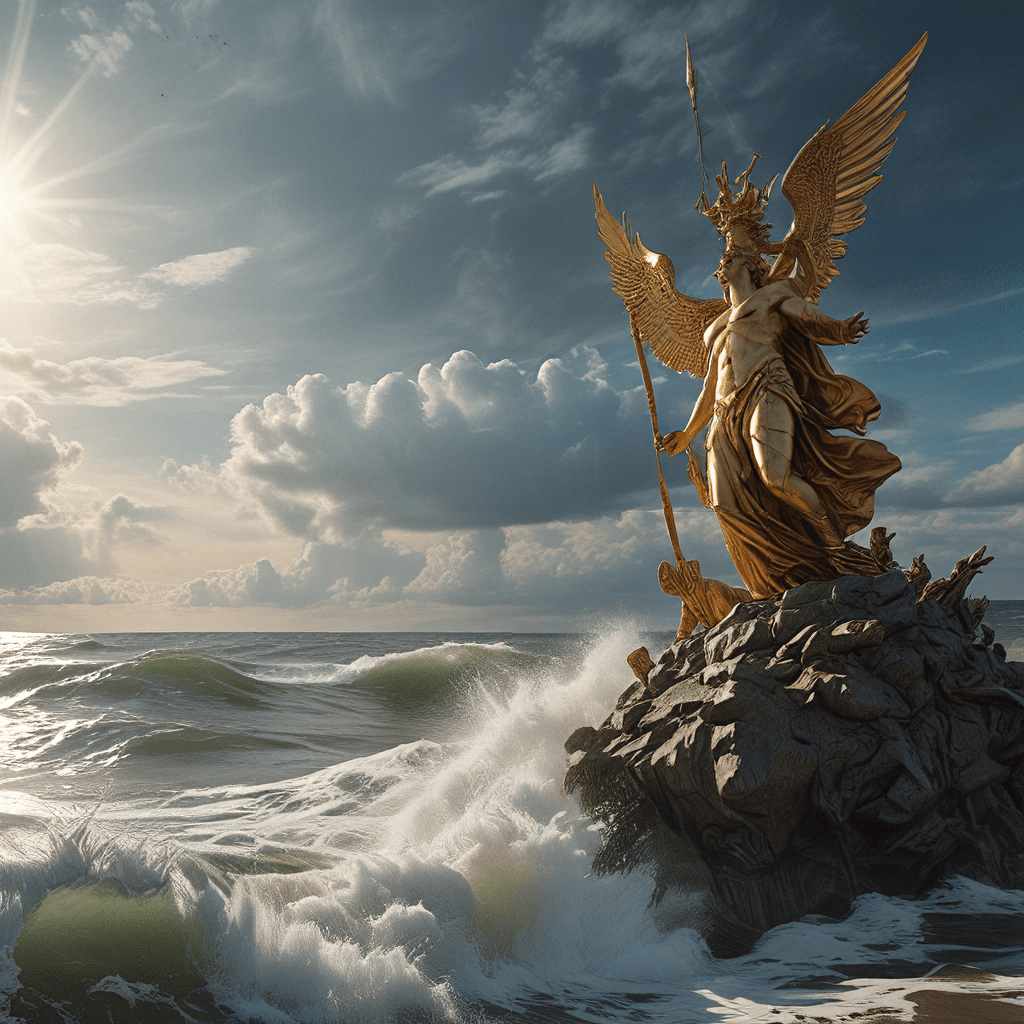The Myth of the Celestial Garden: Legends of Cosmic Beauty
I. Introduction
The concept of the Celestial Garden transcends mere imagery, embodying a profound sense of beauty and harmony found within the cosmos. This mythical garden represents an idealized space where nature and the universe coexist in perfect balance, often symbolizing paradise or enlightenment across various cultures.
Throughout history, the Celestial Garden has held significant importance in many traditions, serving as a metaphor for the human aspiration toward beauty, knowledge, and a deeper understanding of our existence. In this article, we will delve into the rich tapestry of legends surrounding the Celestial Garden and explore their implications on culture, mythology, and our perception of the universe.
II. Historical Origins of the Celestial Garden Myth
A. Ancient civilizations and their interpretations
Many ancient civilizations held beliefs that intertwined their understanding of the universe with the idea of a celestial or divine garden.
1. Mesopotamian beliefs
In Mesopotamia, the myths surrounding the garden of the gods, such as the famous Hanging Gardens of Babylon, illustrated a world where nature flourished under divine care. This garden symbolized not only beauty but also the connection between humanity and the divine.
2. Egyptian mythology
Similarly, in Egyptian mythology, the concept of the Celestial Garden was linked to the afterlife, where the deceased would find eternal peace in lush, verdant landscapes ruled by the gods. The Garden of Osiris, a paradise for the deceased, represents this belief profoundly.
B. The influence of the Celestial Garden on early astronomical studies
Ancient astronomers often drew parallels between celestial phenomena and earthly gardens, leading to a rich body of knowledge that combined mythology with the study of the stars. These early interpretations laid the groundwork for future astronomical advancements.
III. The Celestial Garden in Eastern Mythology
A. The Garden of Paradise in Hinduism
In Hinduism, the concept of the Celestial Garden is embodied in the idea of ‘Svarga,’ a heavenly realm where souls experience bliss and beauty. The lush landscapes and vibrant flora symbolize the ultimate rewards of virtuous living.
B. The significance of the Celestial Garden in Chinese cosmology
Chinese cosmology also reflects the Celestial Garden through the myth of the ‘Peach Blossom Spring,’ a land of eternal beauty and peace. This mythical garden represents a utopia, a recurring theme in Chinese literature and philosophy.
C. Cross-cultural similarities and differences
Across cultures, the Celestial Garden serves as a potent symbol of beauty and harmony. While interpretations may vary, the underlying theme of a paradise-like existence remains consistent, illustrating humanity’s quest for understanding and connection with the cosmos.
IV. Western Interpretations of the Celestial Garden
A. The Garden of Eden in Judeo-Christian tradition
The Garden of Eden epitomizes the Western interpretation of the Celestial Garden, representing a state of innocence and divine beauty. This mythological garden serves as the backdrop for humanity’s fall from grace, intertwining themes of knowledge, temptation, and redemption.
B. Renaissance art and the depiction of celestial beauty
During the Renaissance, artists sought to capture the essence of the Celestial Garden through their works, portraying scenes of divine beauty and harmony. These representations often included lush landscapes filled with vibrant flora and celestial motifs.
C. The impact on European literature and poetry
The Celestial Garden also permeated European literature and poetry, influencing writers and poets to explore themes of beauty, nature, and the cosmos. Notable works often reflected on the idealized garden as a metaphor for human aspiration and the search for meaning.
V. The Role of Nature and Beauty in Cosmic Legends
A. Symbolism of beauty in celestial gardens
Beauty within celestial gardens symbolizes not only physical allure but also spiritual enlightenment and harmony. These gardens serve as metaphors for the interconnectedness of all existence.
B. Parallels between earthly gardens and cosmic landscapes
Both earthly gardens and cosmic landscapes reflect nurturing and growth, illustrating the cyclical nature of life. The parallels drawn between these realms emphasize humanity’s longing to connect with the divine.
C. The philosophical implications of beauty in the universe
Philosophically, the allure of beauty in celestial gardens prompts profound questions about existence, purpose, and the nature of the universe itself. This exploration can lead to greater understanding and appreciation of our place within the cosmos.
VI. The Celestial Garden and Astronomy
A. The influence of celestial gardens on early astronomical concepts
Early astronomers were inspired by celestial gardens, using these myths to conceptualize the movements and positions of stars and planets. This interplay between mythology and science fostered a rich understanding of the cosmos.
B. How myths inspired the naming of celestial bodies
Many celestial bodies are named after figures from mythology, reflecting the influence of the Celestial Garden on our understanding of the universe. For example, planets and constellations often bear names that evoke the beauty and wonder of these ancient gardens.
C. The relationship between mythology and modern astronomy
Today, while our understanding of the universe has advanced, the relationship between mythology and astronomy remains significant. Myths continue to inspire scientific inquiry and exploration, highlighting the enduring connection between humanity and the cosmos.
VII. The Psychological and Cultural Impact of the Celestial Garden
A. The allure of the idealized cosmic beauty
The Celestial Garden captivates the human imagination, representing an idealized vision of beauty that transcends worldly limitations. This allure speaks to our deepest desires for peace, happiness, and connection.
B. Exploration of myths as reflections of human desire
Myths surrounding the Celestial Garden often reflect universal human desires—seeking paradise, understanding our place in the universe, and yearning for beauty. These themes resonate across cultures and generations.
C. The impact on art, literature, and popular culture
The influence of the Celestial Garden permeates art, literature, and popular culture, inspiring countless works that explore themes of beauty, nature, and the cosmos. From classic paintings to contemporary films, the myth remains a vital source of inspiration.
VIII. Modern Interpretations and Representations
A. The Celestial Garden in contemporary science fiction
In contemporary science fiction, the Celestial Garden is often depicted as a utopian realm, representing humanity’s aspirations for a better future. These narratives explore the intersections of technology, nature, and the cosmos.
B. Virtual and digital representations of cosmic beauty
Advancements in technology have allowed for the creation of virtual and digital representations of cosmic beauty, bringing the concept of the Celestial Garden to life in new and immersive ways. These representations often invite exploration and reflection.
C. The relevance of the myth in today’s society
As society grapples with environmental challenges and existential questions, the myth of the Celestial Garden remains relevant, offering hope and inspiration for a harmonious future. It serves as a reminder of the beauty that exists in nature and the cosmos.
IX. The Future of the Celestial Garden Myth
A. How ongoing scientific discoveries may reshape these legends
As scientific discoveries continue to unfold, the legends of the Celestial Garden may evolve, reshaping our understanding of the universe and our place within it. New findings could inspire fresh interpretations of these ancient myths.
B. The potential for new myths in a rapidly advancing world
In a world characterized by rapid technological advancements, new myths may emerge, reflecting contemporary values and aspirations. These narratives could take the form of digital gardens or virtual paradises that connect humanity with the cosmos.
C. The enduring allure of the celestial garden concept
Despite changes in understanding, the allure of the Celestial Garden will likely endure, continuing to inspire future generations to seek beauty, harmony, and a deeper connection with the universe.
X. Conclusion
The myth of the Celestial Garden is a testament to humanity’s enduring fascination with beauty and the cosmos. Across cultures and eras, these legends have served as reflections of our deepest desires and aspirations, intertwining mythology, culture, and science.
As we explore the implications of these myths, we gain insight into our relationship with the universe and the beauty that surrounds us. The Celestial Garden remains a powerful symbol, inviting us to



